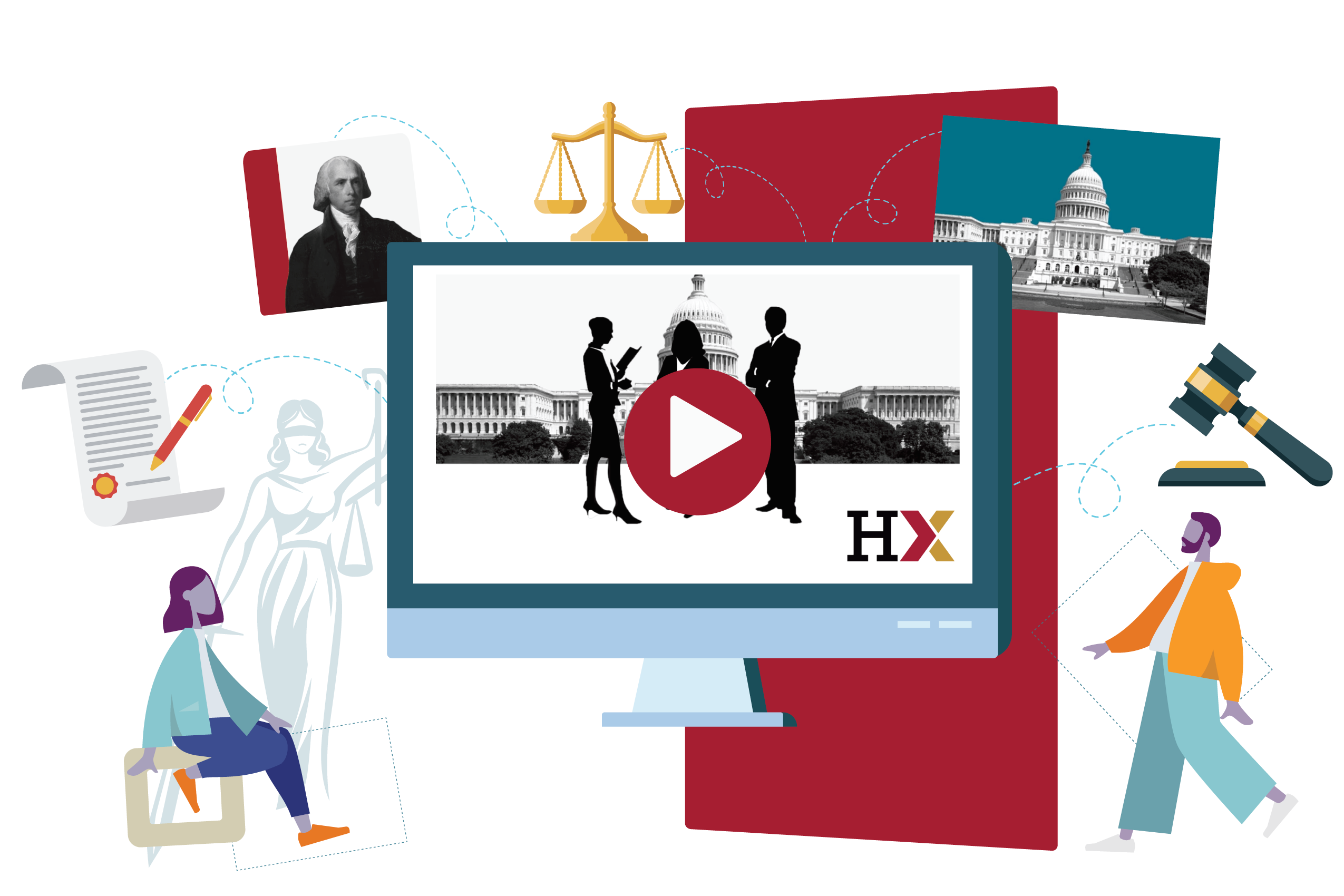Harvard Law School today announced plans to make its online, pre-term course for incoming law students, Zero-L, available to other U.S. law schools for free again for a second year as law schools emerge from the pandemic. Beginning in the summer of 2022, HLS will return to its pre-pandemic plan to offer Zero-L as an educational tool that other law schools can purchase for a reasonable fee to share with their students.
A self-paced course with optional comprehension checks, Zero-L is taught by leading Harvard faculty members, and covers fundamental elements of the law — including an introduction to the U.S. Constitution, the court system, and concepts like federalism — as well as some critical elements of law school orientation. Students can complete it in 12-14 hours, though many choose to return to the materials repeatedly over the course of their first year in law school. (The name Zero-L is a play on the traditional terms for first-, second-, and third-year law students — 1Ls, 2Ls, and 3Ls).
“We created Zero-L several years ago to help incoming Harvard Law students from all backgrounds gain a common baseline of knowledge as they begin their law school careers,” said Harvard Law School Dean John F. Manning ’85. “As the first in my family to graduate from college and the first to go to law school, I often had the feeling that everyone around me just got law school as soon as they walked through the door, and that I didn’t. Zero-L aims to help all new students feel prepared to succeed on day one.”
Zero-L’s faculty director, Professor I. Glenn Cohen ’03, recalled his experience as a new law student similarly. “Like many law students, I found the first few months of law school daunting,” Cohen explained last May. “We built this program to substitute a ‘smooth on-ramp’ for the ‘steep climb’ I and many others encountered upon starting law school.”
After offering the course to incoming Harvard Law students for two years, and piloting it with students at four partner law schools for another, administrators were ready last spring to make it available commercially at a reasonable price. With the arrival of the COVID-19 pandemic, however, Manning, Cohen and other faculty and administrators decided to postpone those plans and, instead, offer the course for free that summer to any U.S. law school that might be interested. The goal was to help schools, many facing the prospect of truncated or online orientations with little time to prepare, onboard their new students.
Positive Response
HLS never imagined that roughly 20,000 incoming students at nearly 120 law schools across the country, and a few from abroad, would take advantage of the opportunity to access Zero-L for free last summer.
“When we offered Zero-L for free last summer, we didn’t know how many schools would sign up,” said Jessica Soban ’07, associate dean for student services. “In the end, we were delighted to have the opportunity to work with roughly half the law schools nationwide. We were really pleased we were able to help so many law schools and first year law students get through a very challenging start of the year at a time of great uncertainty.”
After taking Zero-L, students were asked for feedback on the course and how it might be improved. The response was overwhelmingly positive from students nationwide: 88% of respondents said that Zero-L was somewhat or extremely effective in preparing them for their first classes at law school, while 86% said they were “somewhat” or “extremely” likely to recommend Zero-L to a friend.
Students from schools across the country also spoke to how Zero-L addressed concerns shared by many entering 1Ls. Some responded by highlighting their family’s lack of connection to the law, and their anxiety about understanding terms like “briefing” and “outlining.” Others commented on how the course had specifically helped them during the early months of their time at law school, especially if they had a “non-law-oriented background.”
Respondents underscored how Zero-L helped alleviate their anxiety upon starting law school, regardless of their background. Although this positive student response was not a surprise, Assistant Dean for Learning Experience and Technology Leah Plunkett ’06 says she was glad to hear it nonetheless.
“We knew Zero-L had worked for our students, and had worked at the four other law schools with which we piloted it several years ago,” said Plunkett, who leads Zero-L and other online initiatives for the Law School. “And we were confident it would work for any new law student anywhere. But you never know for sure until you see the data — how students used the course, how they performed on the comprehension checks — and then get feedback from participants themselves. I’m pleased to say it has been overwhelmingly positive.”
2021 and Beyond
A year after making the decision in the early days of the pandemic to waive the fee for Zero-L in the summer of 2020, HLS has decided to continue to make Zero-L available for free this coming academic year. Administrators add that they also welcome inquiries from law schools outside the U.S. about whether Zero-L would also be a good fit for their incoming students, also free of charge.
“Although things appear to be in a much better place than they were at this time last year, we understand that law schools across the country are still dealing with huge levels of disruption due to the pandemic,” said Dean Manning. “We wanted to provide all schools the opportunity to get access to Zero-L for free again this year.”
In the coming years, Harvard Law School expects to continue to update and expand the course. In addition to waiving the fee for Zero-L for a second year, Harvard Law will continue to make a portion of the course focused on American civics permanently available for free for all interested learners to experience on HarvardX.
